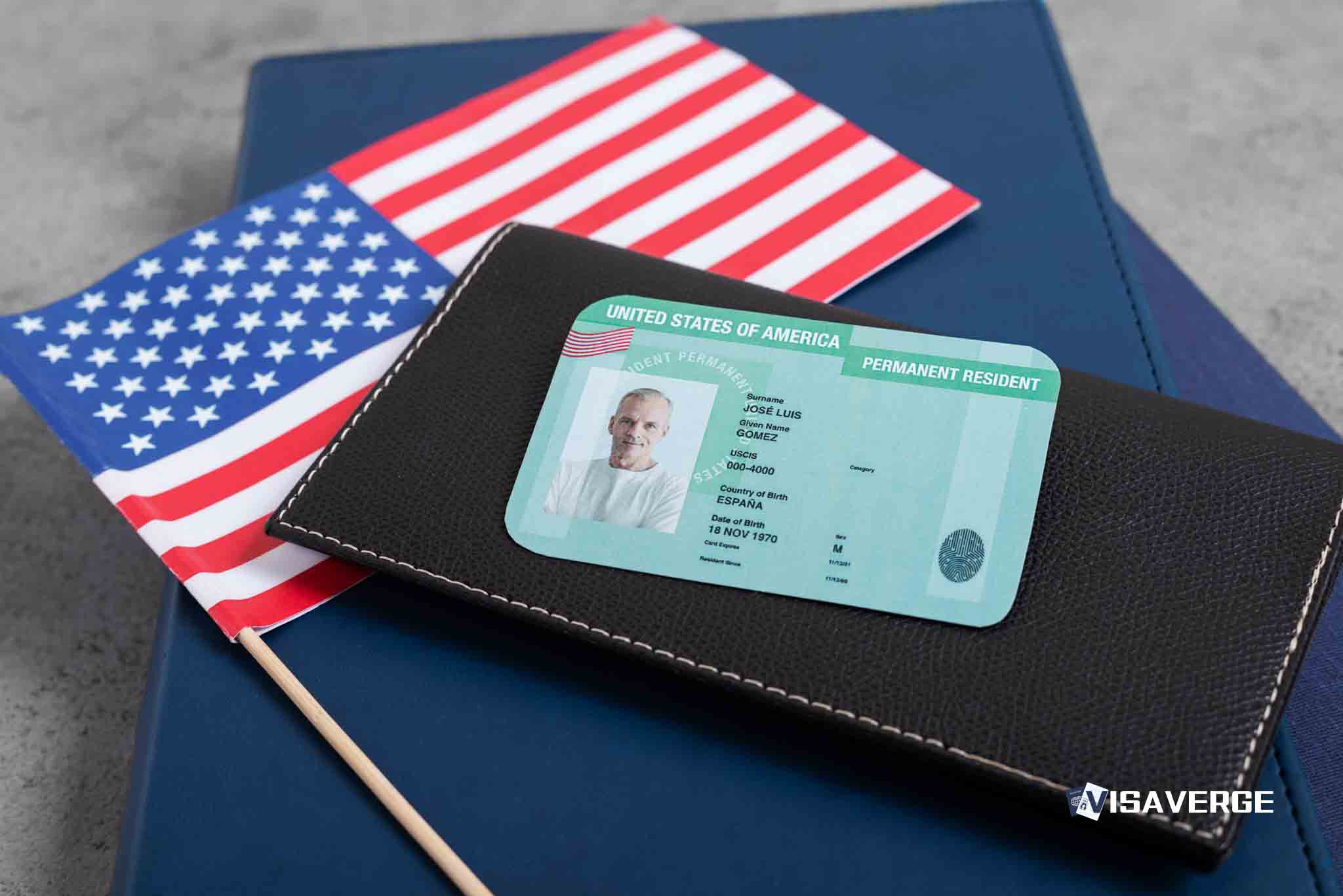Filing taxes in the United States can oftentimes feel like navigating a labyrinth, but it need not be so daunting for holders of the H1B visa, a non-immigrant visa that allows U.S. companies to employ graduate level workers in specialty occupations. With the correct guidance and a comprehensive checklist of required documents, the H1B visa tax filing process can be tackled with confidence. Understanding the H1B visa tax filing requirements is the first step towards a smooth tax filing experience.
Here is an authoritative guide to what documentation H1B visa holders need to file their taxes:
Required Documentation for H1B Visa Holders Taxes
When preparing to file your taxes, you must gather all necessary documentation that proves income, tax payments, and residency status. As an H1B visa holder, here are the key documents you need to have on hand:
1. Social Security Number (SSN) or Individual Taxpayer Identification Number (ITIN)
If you do not have a SSN, you will need an ITIN which can be applied for by submitting Form W-7 to the IRS.
2. Form W-2

This form reports your annual wages and the amount of taxes withheld from your paycheck. Employers are required to provide this to you by January 31st.
3. Form 1040 and Form 1040NR
Form 1040 is the standard federal income tax form for individuals. H1B holders may have to file Form 1040NR if they are considered non-resident aliens for tax purposes.
4. Wage Statements
These include Form 1099 and/or Form 1042-S, which detail any additional earnings or income such as interest, dividends, or compensation for independent contract work.
5. Passport and Visa Information
Including copies of your passport biographical page, U.S. visa, and I-94 record to establish foreign status and visa compliance.
6. U.S. Entry and Exit Dates
These dates are crucial for determining tax residency status. Your travel history can be accessed and printed from the U.S. Customs and Border Protection (CBP) website.
7. Form 8843 “Statement for Exempt Individuals and Individuals with a Medical Condition”
This form may be required if you were present in the U.S. under a specific visa category, including H1B.
8. State Tax Return Documents
Your state tax filing requirements vary depending on the state in which you live. These documents are often similar to the federal requirements but check with your state’s department of revenue for specifics.
H1B Visa Tax Filing Requirements
Meeting tax obligations as an H1B visa holder means understanding your tax residency status. The IRS uses the Substantial Presence Test to determine this, which takes into account the number of days you were present in the U.S. in the current and previous two years. If you meet the requirements of this test, you are treated as a resident alien for tax purposes, otherwise as a non-resident alien.
Resident aliens file taxes similarly to U.S. citizens, encompassing worldwide income and taking advantage of various deductions and credits. Non-resident aliens report only U.S. sourced income and are subject to a different set of tax rates and deductions.
Regardless of your status, it’s imperative to be thorough and accurate when completing your tax returns. Failing to comply with U.S. tax laws can have significant consequences, including visa renewal denials or even deportation.
Important External Resources
For authoritative advice and official forms, the following resources are invaluable:
- The Internal Revenue Service (IRS) (irs.gov): For forms, publications, and detailed guidance on federal tax filing.
- U.S. Citizenship and Immigration Services (USCIS) (uscis.gov): For immigration-related queries and policy changes.
- U.S. Customs and Border Protection (CBP) (cbp.gov): To access your travel history for the Substantial Presence Test.
Final Thoughts
As an H1B visa holder, staying informed and preparing ahead of the tax season is crucial. By compiling all the necessary documentation for H1B visa holders’ taxes well in advance, you can ensure a smooth tax filing process. Always consult with a tax professional for personalized advice and to keep abreast of any changes in legislation that might affect your tax situation. Remember, understanding your filing requirements is not only prudent, but it also reinforces your standing as a law-abiding individual in the U.S. job market.
Still Got Questions? Read Below to Know More:
I just moved to the U.S. with an H1B visa and got my first job. How soon do I need to start worrying about taxes, and what should I do first
Welcome to the U.S. with your H1B visa! It’s important to start thinking about taxes right away, as tax responsibilities begin with your first paycheck. Here’s what you should do first:
- Understand Your Tax Obligations: As an H1B visa holder, you’re considered a resident alien for tax purposes if you pass the “Substantial Presence Test,” which usually means being in the U.S. for at least 183 days in a three-year period. As a resident alien, you’re taxed on your worldwide income, just like a U.S. citizen.
- Get a Social Security Number (SSN): If you don’t already have one, apply for a Social Security Number as soon as possible. This is necessary for tax filing and employment.
- Complete Form W-4: Your employer should provide this form, which determines how much federal income tax to withhold from your paycheck. Fill it out accurately to avoid owing a large sum or overpaying taxes.
“Don’t wait until tax season to think about your taxes. Review your situation as soon as you start working.”
For more information and for how to file your taxes, visit the IRS website specifically for International Taxpayers: IRS International Taxpayers.
Also, it’s wise to plan for the April 15th tax filing deadline by keeping track of your income and any tax-related documents throughout the year. It is often helpful to consult with a tax professional who has experience with H1B visa holders to ensure that you’re complying with all tax laws and taking advantage of any treaty benefits that may apply to your situation.
My friend told me that I might need to report my income from my home country on my U.S. tax return. Is this true for someone with an H1B visa, and how does that work
Yes, if you are in the United States on an H1B visa, you’re generally considered a resident alien for tax purposes, which means you’re taxed on your worldwide income. This includes your income from your home country and any other foreign sources. Here’s how it works:
- Determine Your Tax Residency: As an H1B holder, if you meet the substantial presence test (meaning you’ve been in the U.S. for at least 31 days during the current year and a total of 183 days during the current and previous two years), you are a resident alien for tax purposes. You can find more information on the substantial presence test on the IRS website: Determining Alien Tax Status.
- Report Worldwide Income: As a resident alien, you must report your income from all sources within and outside of the U.S. This is outlined by the IRS: “If you are a U.S. resident alien, you must report all interest, dividends, wages, or other compensation for services, income from rental property, or other income (including income from outside the U.S.) on your U.S. tax return.” You can see more on the IRS’s webpage on Taxation of Resident Aliens.
-
File the Correct Forms: When filing your tax return, you’ll need to include your worldwide income. You may be able to use Foreign Tax Credit to avoid double taxation if you’ve already paid taxes on that income in your home country. Form 1040 is the usual tax form for resident aliens, and to claim foreign tax credit, you would file Form 1116. Here’s the link to the IRS’s page on Foreign Tax Credit.
Please make sure to consult with a tax professional or accountant if you need assistance with filing your U.S. tax returns, as they can provide personalized advice based on your specific situation. Additionally, make sure to keep a good record of your worldwide income and taxes paid in other countries to be as accurate as possible when filing your U.S. tax return.
I’m on an H1B visa and planning to visit my family abroad for a month. Will being outside the U.S. for that long affect how I file my taxes
If you’re on an H1B visa and planning to visit your family abroad for a month, this short-term absence typically does not have a major impact on how you file your taxes. Here are the key points to keep in mind:
- Substantial Presence Test: To determine if you should file taxes as a resident alien or a non-resident alien, the IRS uses the Substantial Presence Test. You meet this test if you are physically present in the United States for at least:
- 31 days during the current year, and
- 183 days during the 3-year period that includes the current year and the 2 years immediately before that, counting all the days you were present in the current year, and 1/3 of the days you were present in the first year before the current year, and 1/6 of the days you were present in the second year before the current year.
Being away for a month should not affect this calculation significantly, as you would still likely meet the test for being considered a resident alien for tax purposes.
-
Tax Filing Status: Your tax filing status as a resident or non-resident alien determines how you are taxed and what forms you need to submit. If you’re considered a resident alien due to the Substantial Presence Test, you will file taxes in the same manner as US citizens and residents, which includes worldwide income reporting.
-
Travel Dates: Keep a record of your travel dates. This record is crucial for the Substantial Presence Test and ensures you report your days in the U.S. accurately when filing your taxes.
Before you travel, it’s advisable to consult with a tax professional or check the Internal Revenue Service (IRS) website for detailed information regarding your situation. Remember, short visits abroad usually do not change your tax situation significantly.
For more information and resources, you can visit the IRS’s official website using the following link:
– IRS Guidelines on Alien Residency – Substantial Presence Test
Keep in mind, the most important aspect is whether you meet the Substantial Presence Test, and a one-month absence shouldn’t change that for the majority of H1B holders. However, every individual’s situation can differ, so when in doubt, always refer to IRS guidelines or seek professional tax advice.
I’ve been working on an H1B visa for a few years. This year, I got married to a U.S. citizen. How will my tax filing change due to my new marital status
Congratulations on your marriage! When you marry a U.S. citizen, your tax filing status changes in a significant way. As an H1B visa holder, you are generally considered a resident alien for tax purposes if you meet the substantial presence test, which it sounds like you do, as you’ve been working in the U.S. for a few years. Now that you’re married, for tax purposes, you have two main options:
- Married Filing Jointly: You and your spouse can choose to file a joint tax return. This often results in a lower tax rate and allows for a higher standard deduction. By filing jointly, you will need to report your combined worldwide income.
- Married Filing Separately: Alternatively, you can file separately from your spouse. This might be beneficial in certain circumstances, such as when one spouse has significant medical expenses or miscellaneous itemized deductions.
Here’s a direct quote from the IRS website concerning nonresident aliens who are married to U.S. citizens or residents:
“If you are a nonresident alien at the end of the tax year, and your spouse is a U.S. citizen or resident alien and you both choose to treat the nonresident as a resident for tax purposes and file a joint income tax return”
Generally, in your case, you would most likely benefit from Married Filing Jointly, but it’s essential to consider your specific financial situation. It’s a good idea to speak with a tax professional or accountant who can provide personalized advice and ensure you comply with all necessary tax laws and take advantage of any tax benefits.
For more detailed information, please refer to the official IRS website section on International Taxpayers and the page specifically about Nonresident Aliens Married to U.S. Citizens or Residents: IRS – International Taxpayers.
The company I work for on an H1B visa offers stock options as part of my compensation. What kind of tax forms should I expect, and how do I report this when I file my taxes
When you receive stock options as part of your compensation while on an H1B visa, you will be subject to U.S. tax laws regarding this benefit. As you approach tax filing, expect to handle various forms, depending on the nature and execution of your stock options. Here are the key details you’ll need to know:
- Form W-2: If you exercise your stock options, the income from the exercised options will be reported on your Form W-2, which is the standard wage and tax statement provided by your employer. This form will show the additional income as part of your compensation.
- Form 3921: In the case of Incentive Stock Options (ISOs), if you exercise them, your employer will provide you with Form 3921, “Exercise of an Incentive Stock Option Under Section 422(b).” This form details important information regarding the exercise of ISOs such as the exercise price, fair market value at the exercise date, and the number of shares acquired. You’ll use this information to determine if you need to report any alternative minimum tax (AMT) and for calculating your basis in the shares for future sales.
-
Schedule D and Form 8949: When you sell your stock options, you will report capital gains or losses on Schedule D, “Capital Gains and Losses,” and Form 8949, “Sales and Other Dispositions of Capital Assets.” These forms reconcile the amounts that have been reported to you and to the IRS on Form 1099-B, which comes from your broker or the financial institution that manages the stock sales.
To report your stock option compensation correctly, and calculate any taxes owed, you should keep detailed records of your stock option grants, exercise prices, exercise dates, fair market value at the time of exercise, sale prices, and dates of sale. It is also advisable to consult with a tax professional or accountant who is familiar with stock option taxation for H1B visa holders. Since immigration status can affect tax obligations, please check with the Internal Revenue Service (IRS) or official tax guidance for more information.
For more details on the tax treatment of stock options and the necessary forms, you can explore the IRS website: www.irs.gov.
Learn today
Glossary or Definitions:
- H1B Visa: A non-immigrant visa that allows U.S. companies to employ graduate level workers in specialty occupations.
- Non-immigrant visa: A visa that allows foreign individuals to enter the United States on a temporary basis, typically for work, study, or tourism.
-
Filing taxes: The process of submitting tax returns to the Internal Revenue Service (IRS) in order to report income and pay taxes owed.
-
Labyrinth: A complex and confusing system or process.
-
Comprehensive checklist: A detailed list of all required documents and tasks to be completed.
-
Social Security Number (SSN): A unique nine-digit number assigned to U.S. citizens, permanent residents, and certain temporary residents for the purpose of tracking their income and tax contributions.
-
Individual Taxpayer Identification Number (ITIN): A nine-digit number issued by the IRS to individuals who are required to have a U.S. taxpayer identification number but do not qualify for a Social Security Number.
-
Form W-7: The application form used to apply for an ITIN.
-
Form W-2: A form provided by an employer to an employee that reports the employee’s annual wages and the amount of taxes withheld from their paycheck.
-
Form 1040: The standard federal income tax form for individuals.
-
Form 1040NR: A federal income tax form specifically for non-resident aliens who have income from U.S. sources.
-
Wage Statements: Documents, such as Form 1099 and Form 1042-S, that report additional earnings or income, such as interest, dividends, or compensation for independent contract work.
-
Passport: A travel document issued by a country’s government that certifies the identity and nationality of the holder.
-
Visa: An endorsement or stamp placed in a passport that allows the passport holder to enter, leave, or stay in a country for a specific period and for a specific purpose.
-
I-94 record: An electronic record that documents a non-immigrant’s arrival and departure from the United States, including the duration of their authorized stay.
-
U.S. Entry and Exit Dates: The dates of an individual’s arrival and departure from the United States, used to determine tax residency status.
-
Form 8843: A form that must be filed by certain non-resident aliens to claim an exemption from the substantial presence test.
-
State Tax Return Documents: Documents specific to each state that are required for filing state income tax returns.
-
Substantial Presence Test: A test used by the IRS to determine an individual’s tax residency status based on the number of days they were present in the United States.
-
Resident alien: An individual who meets the requirements of the Substantial Presence Test and is considered a resident for tax purposes, similar to a U.S. citizen.
-
Non-resident alien: An individual who does not meet the requirements of the Substantial Presence Test and is considered a non-resident for tax purposes, subject to different tax rates and deductions.
-
Internal Revenue Service (IRS): The federal agency responsible for administering and enforcing tax laws in the United States.
-
U.S. Citizenship and Immigration Services (USCIS): The agency responsible for administering immigration services, including the processing of visas and applications for immigration benefits.
-
U.S. Customs and Border Protection (CBP): The agency responsible for controlling the flow of people and goods into and out of the United States, including maintaining records of individuals’ travel history.
-
Tax professional: An individual with expertise in tax laws and regulations, who can provide personalized advice and assistance with tax preparation.
Please note that the definitions provided here are based on the context in which they are used in the given content.
Expert Insights
Did You Know?
- Historical Insights: The H1B visa program was created as part of the Immigration Act of 1990, signed into law by President George H.W. Bush. It was designed to attract highly skilled foreign workers to help fill gaps in the U.S. labor market.
- Surprising Statistic: According to the U.S. Department of Homeland Security, between 2011 and 2020, the top three countries of origin for H1B visa holders were India, China, and South Korea.
-
Unique Law: The Diversity Immigrant Visa Program, also known as the Green Card Lottery, is a unique immigration program that allows individuals from countries with low rates of immigration to the United States to apply for a chance to win a green card.
-
Cultural Aspect: The United States is often referred to as a “Nation of Immigrants,” and for good reason. According to the Migration Policy Institute, as of 2020, approximately 44.9 million immigrants reside in the United States, accounting for about 13.7% of the total population.
-
Surprising Statistic: Contrary to popular belief, immigrants contribute significantly to the U.S. economy. According to a report by the National Academies of Sciences, Engineering, and Medicine, immigrants have a net positive effect on economic growth, innovation, and job creation.
-
Historical Insights: Ellis Island, located in New York Harbor, served as the gateway for millions of immigrants arriving in the United States between 1892 and 1954. It processed over 12 million immigrants during its operation, making it a symbol of America’s rich immigration history.
-
Unique Law: The Refugee Act of 1980 established the current legal framework for the admission of refugees into the United States. It introduced a systematic and standardized process for reviewing refugee claims and provided services and assistance to those seeking refuge.
-
Cultural Aspect: Immigrants have played a significant role in shaping American culture, including food, music, art, and literature. Iconic figures such as Albert Einstein, Audrey Hepburn, and Steve Jobs are just a few examples of immigrants who have made lasting contributions to American society.
By exploring these lesser-known facts about immigration, we can gain a deeper understanding of the complexities, contributions, and cultural diversity associated with the immigration experience in the United States.
Filing taxes as an H1B visa holder doesn’t have to be daunting! With the right guidance, a checklist of necessary documents, and an understanding of your tax residency status, you can tackle it confidently. Be thorough, accurate, and check out visaverge.com for more helpful resources!








